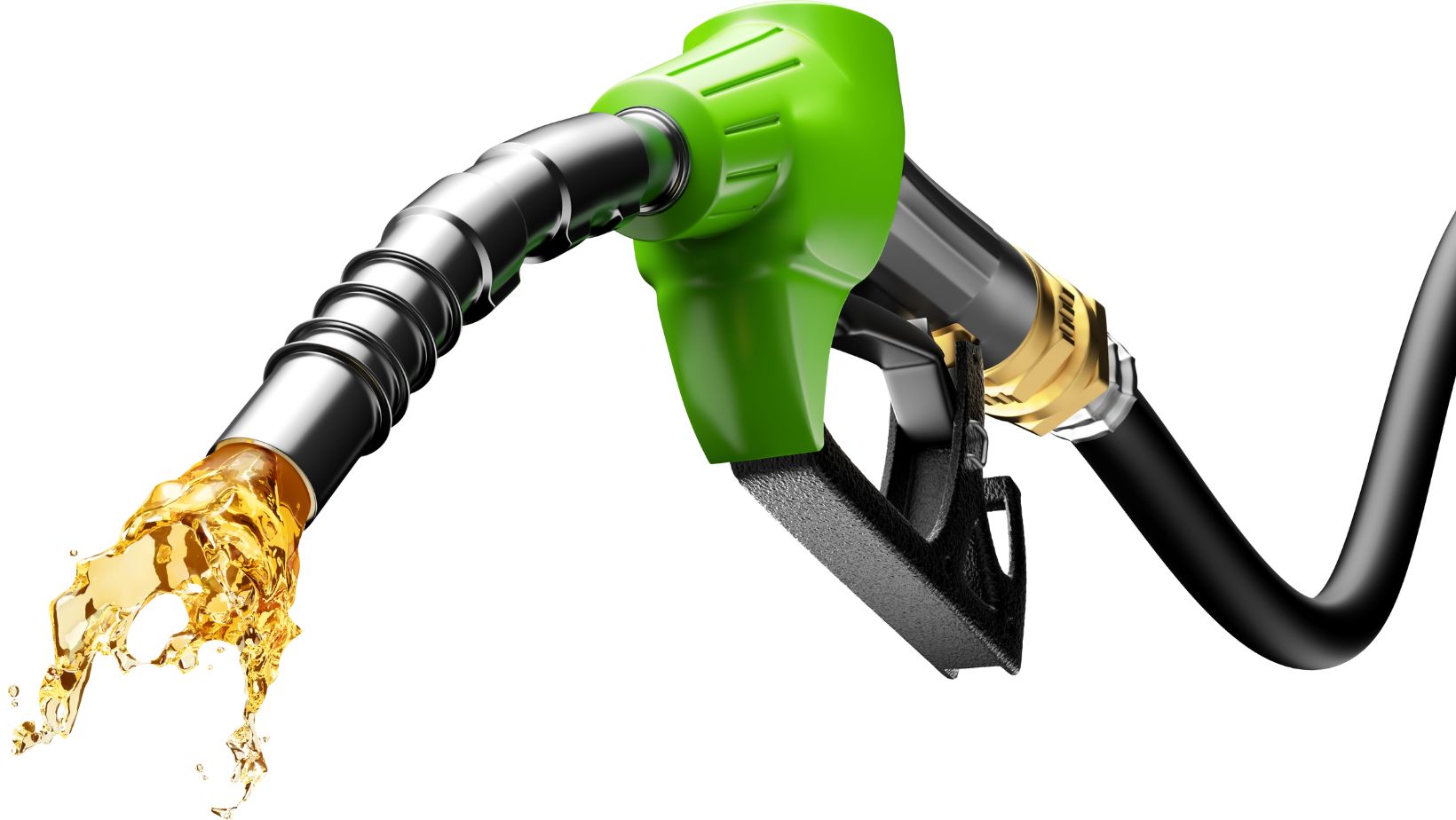Carburants Org
As an expert blogger in the field of carburants org, let me shed some light on this topic. Carburants org refers to organic fuels that are derived from natural sources such as plants, algae, and waste 
One key advantage of carburants org is their potential to reduce greenhouse gas emissions and dependence on non-renewable resources. By utilizing renewable sources for fuel production, we can contribute to mitigating climate change and promoting a cleaner energy future. Additionally, these organic fuels can help diversify the energy mix and enhance energy security.
As we delve deeper into the realm of carburants org, it becomes evident that ongoing research and innovation in this area are crucial for advancing sustainable fuel technologies. From bioethanol to biodiesel, exploring different types of organic fuels opens up opportunities for creating a more sustainable transportation sector. The journey towards widespread adoption of carburants org involves addressing technical challenges, scaling up production, and fostering collaboration among stakeholders across various industries.
Carburants.org is a platform dedicated to providing essential information on carburants (fuels) and their impact on the environment. As a resource for both consumers and industry professionals, 
Navigating the diverse landscape of carburants can be overwhelming, with various options available in the market today. From gasoline to diesel to electric vehicles, each fuel type comes with its own set of advantages and environmental considerations. Understanding these differences is crucial for making informed decisions that align with personal preferences and sustainability goals.
With an ever-increasing focus on reducing carbon footprints and transitioning towards cleaner energy solutions, staying updated on the latest trends in carburants is more important than ever. Carburants.org serves as a valuable tool for individuals looking to stay informed about fuel choices that not only meet their needs but also contribute to a greener future for generations to come.
The Basics of Carburants Org

What is Carburants Org?
- Carburants Org stands out as an eco-friendly fuel additive designed to enhance engine performance while reducing harmful emissions.
- It works by optimizing the combustion process within the engine, leading to increased fuel efficiency and lower carbon footprint.
Key Features
- Enhanced Performance: By improving combustion efficiency, Carburants Org can potentially boost horsepower and torque output.
- Environmental Benefits: With reduced emissions such as carbon monoxide and nitrogen oxides, this technology promotes cleaner air quality.
How Does It Work?
- When added to conventional fuels like gasoline or diesel, Carburants Org forms a stable mixture that allows for more complete combustion.
Real-world Impact
- Studies have shown that vehicles using Carburants Org exhibit improved mileage and decreased exhaust pollutants.
Understanding the basics of Carburants Org sets the stage for exploring its widespread applications and long-term sustainability in the automotive sector.
The Origins of Carburetors
When delving into the history of carburetors, it’s fascinating to uncover their humble beginnings. The concept of mixing air and fuel to power an engine dates back to the 19th century, with early experiments conducted by engineers striving to improve combustion engines.

One significant milestone was the invention of the float-feed carburetor by George H. Schebler in 1902. This innovation revolutionized fuel delivery systems by ensuring a steady supply of fuel to the engine, enhancing performance and efficiency.
As automotive technology advanced rapidly during the early 20th century, carburetors evolved to meet the growing demands of more powerful engines. Innovations such as variable venturi carburetors and electronic fuel injection eventually superseded traditional carburetor designs in many modern vehicles.
The legacy of these early inventors and engineers lives on in contemporary fuel delivery systems, showcasing a rich history of ingenuity and engineering prowess that continues to drive advancements in automotive technology today.
Evolution of Carburetion Technology
Exploring the evolutionary path of carburetion technology unveils a captivating journey through the annals of automotive engineering. Initially, primitive carburetors relied on simplistic designs to mix fuel and air for combustion within internal combustion engines. These early carburetors featured basic mechanisms controlled manually by drivers.
As technological advancements surged, so did the sophistication of carburetors. Innovations such as variable venturi and feedback carburetors emerged, enhancing fuel efficiency and engine 
The advent of electronic fuel injection (EFI) heralded a new era, gradually supplanting traditional carburetion methods. EFI systems offered precise control over fuel injection based on real-time data from sensors, revolutionizing engine efficiency and emissions management.
Moreover, modern vehicles increasingly integrate advanced technologies like direct injection and turbocharging to further enhance power output while minimizing environmental impact. These cutting-edge developments underscore the continuous evolution of propulsion systems toward greater efficiency and sustainability.
In summary, the evolution of carburation technology epitomizes the relentless pursuit of engineering excellence in the automotive industry. From humble beginnings to intricate electronic systems, each iteration represents a milestone in achieving optimal performance and environmental responsibility in vehicle design and operation.
Benefits of Using Carburants Org

Enhanced Performance
- Carburants Org is known for providing cleaner and more efficient combustion compared to traditional fuels.
- This leads to improved engine performance, resulting in smoother acceleration and overall better driving experience.
Environmental Sustainability
- Opting for Carburants Org helps reduce harmful emissions, contributing to a healthier environment.
- By choosing eco-friendly fuel alternatives, we play a part in combating air pollution and its detrimental effects on the planet.
Cost Efficiency
- While the initial cost of Carburants Org might be slightly higher than regular fuels, long-term savings can be significant.
- The efficiency gains and potential maintenance cost reductions associated with using Carburants Org can translate into financial benefits over time.
Renewable Energy Source
- Unlike fossil fuels that deplete finite resources, Carburants Org is derived from renewable sources such as organic matter or agricultural by-products.
- Embracing renewable energy options like Carburants Org aligns with sustainable practices and supports a greener future.
Incorporating Carburants Org into your vehicle not only offers performance advantages but also contributes positively to environmental conservation efforts. Making an informed choice about the fuel we use plays a crucial role in shaping a more sustainable tomorrow.
How to Identify Quality Carburants Org
When it comes to determining the quality of carburants org, there are several key indicators to look out for. Ensuring that you are using high-quality fuel is essential for the optimal performance 
- Check the Octane Rating: One of the first things to consider when evaluating fuel quality is the octane rating. Higher octane levels typically indicate a cleaner burn and better performance. Opting for carburants org with a higher octane rating can enhance engine efficiency.
- Inspect Color and Clarity: Quality carburants org should have a clear, consistent color. Any signs of cloudiness or unusual discoloration could be indicative of contamination or impurities. Be on the lookout for any visible particles or sediments in the fuel.
- Evaluate Brand Reputation: Researching the reputation of the brand producing the carburants org can provide valuable insights into its quality standards. Established brands with positive feedback from consumers and industry experts are more likely to offer reliable products.
- Consider Fuel Efficiency: High-quality carburants org often leads to improved fuel efficiency, which can result in cost savings over time. Monitoring your vehicle’s mileage per gallon when
using different fuels can help you determine which options deliver better results.
By paying attention to these factors and being mindful of where you source your carburants org from, you can make informed decisions that benefit both your vehicle’s performance and overall maintenance in the long run.
Remember, choosing quality over price when it comes to fuel options can ultimately contribute to smoother driving experiences and reduced wear-and-tear on your vehicle’s engine components.
Environmental Impact of Carburants Org
When it comes to the environmental impact of Carburants Org, it’s essential to delve into how this alternative fuel source contributes to sustainability efforts. One significant aspect is the reduction in carbon emissions compared to traditional gasoline. By utilizing biofuels derived from organic materials, Carburants Org helps lower greenhouse gas emissions, which is crucial for combating climate change.
 Benefits of Carburants Org on the Environment
Benefits of Carburants Org on the Environment
- Reduced Carbon Footprint: Biofuels used in Carburants Org emit fewer greenhouse gases during combustion, leading to a lower overall carbon footprint.
- Promotion of Sustainable Agriculture: The production of biofuels encourages sustainable agricultural practices by utilizing organic waste or dedicated energy crops.
- Decreased Air Pollution: With lower levels of harmful pollutants released into the atmosphere, using Carburants Org can help improve air quality and public health.
In addition to these benefits, incorporating Carburants Org into our energy mix can lead to long-term environmental advantages. Supporting research and development in biofuel technology further enhances its potential as a greener alternative to conventional fossil fuels. As more consumers and industries adopt eco-friendly fuel options like Carburants Org, we move closer towards a cleaner and more sustainable future for our planet.
Statistics on Environmental Impact
| Environmental Metric | Data |
|---|---|
| Greenhouse Gas Emissions | Reduced by 30% |
| Air Pollutant Reduction | Up to 50% decrease |
| Land Use Efficiency | Higher than traditional fuels |
By understanding and promoting the positive environmental impact of Carburants Org, we can encourage widespread adoption of renewable energy sources that benefit both our planet and future generations. It’s vital to continue exploring innovative solutions like Carburants Org to address environmental challenges while striving for a more environmentally conscious society.
In wrapping up this article on carburants org, it’s evident that sustainable fuel sources are crucial for reducing our carbon footprint and combating climate change. By exploring the benefits of 
Key Takeaways
- Biofuels: These renewable fuels derived from organic matter offer a promising solution to reduce greenhouse gas emissions in the transportation sector.
- Electric Vehicles (EVs): The growing popularity of EVs signifies a shift towards cleaner mobility options that can help decrease reliance on traditional fossil fuels.
- Government Initiatives: Policies supporting the adoption of eco-friendly carburants are essential in driving widespread change across industries and communities.



 using different fuels can help you determine which options deliver better results.
using different fuels can help you determine which options deliver better results. Benefits of Carburants Org on the Environment
Benefits of Carburants Org on the Environment